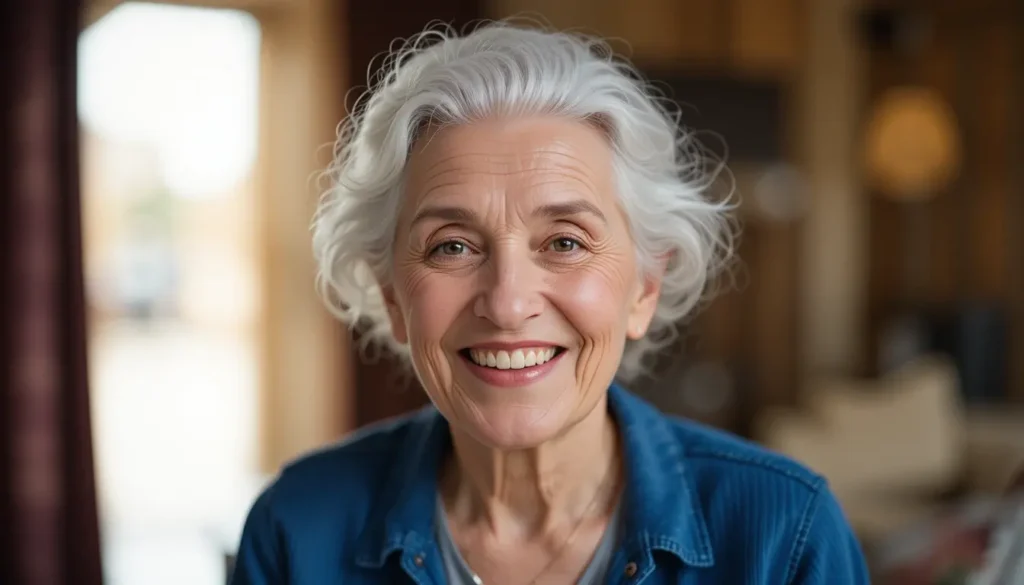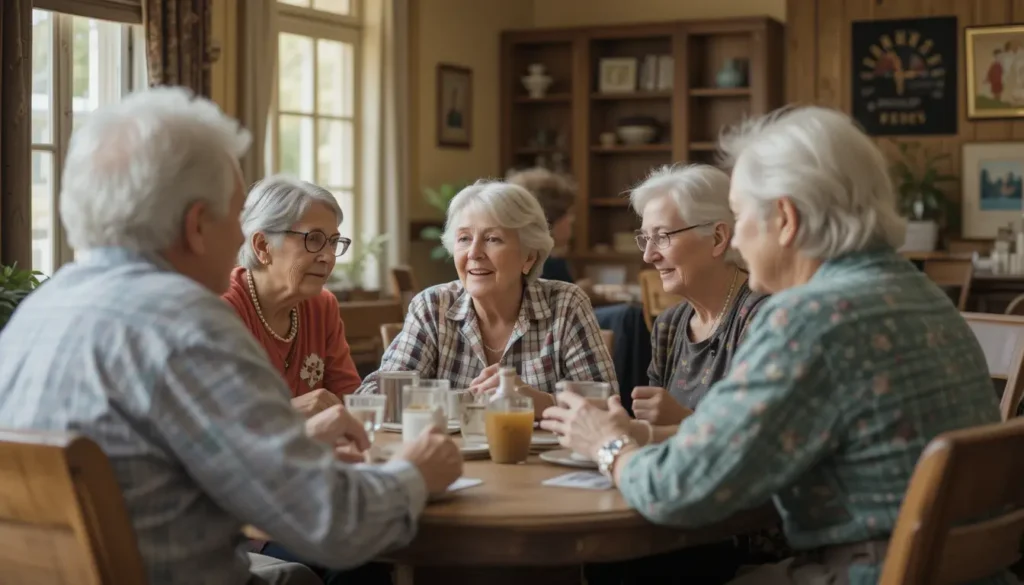Lip balm feels harmless. It is small, easy to carry, and many seniors use it every day. But some lip balms contain ingredients that can harm aging skin instead of helping it. Knowing what to avoid can keep your lips safe and healthy.
Lips thin with age. They lose natural oils and moisture. This makes them more prone to dryness, peeling, and cracks. Because of this, seniors are more sensitive to what goes on their lips. A lip balm that works for younger people may cause irritation for older adults. That is why it is critical to check the label.
You may think lip balm is simple, but formulas can include chemicals, fragrances, and drying agents. Some ingredients are cheap fillers. Others are added for texture or scent but do not serve your health. In the next sections, you will see which ones should not touch your lips.
Ingredients That Harm Instead of Help
1. Menthol and Camphor
Menthol and camphor are added to lip balms because they create a cooling effect. At first, this sensation can feel refreshing, almost as if the balm is working instantly. But that cooling is not healing—it is a chemical reaction that tricks the nerves in your lips.
For seniors, this is risky. The lips are thinner with age and lose moisture faster. Menthol and camphor can strip away the little moisture that remains, leaving lips drier over time. They can also cause stinging, redness, or peeling on sensitive skin. If you have cracked lips or tiny cuts, these ingredients may worsen the discomfort instead of easing it.
Another concern is long-term use. Repeated exposure can cause chronic irritation. Seniors who apply balm several times a day are more at risk. What feels soothing for a moment may actually start a cycle of dryness that never truly heals. That is why avoiding these two ingredients is one of the most important steps to protect aging lips.
2. Salicylic Acid
Salicylic acid is best known for treating acne, but some lip balms include it to remove flaky skin. It works by breaking down the top layer of dead cells. For younger skin, this may help smoothness. For seniors, it can cause serious problems.
Aging lips are already fragile. The natural barrier is thinner and takes longer to repair. When salicylic acid is applied, it can strip this barrier away completely. Instead of helping, it leaves lips raw and exposed. This increases the chance of cracks, which can bleed and hurt.
There is also a risk of infection. Tiny open spots on the lips are easy entry points for bacteria. Seniors with health conditions such as diabetes or immune system changes must be extra cautious. What looks like a “healing” balm could actually make lips weaker. A safer approach is to use gentle moisturizers that strengthen, not strip, the skin.
3. Phenol
Phenol is another ingredient used for its tingling sensation. It creates the feeling that the balm is powerful and active. But this effect is misleading. Phenol does not heal—it can damage delicate lip tissue if used too much.
For seniors, this risk is higher. As the skin becomes thinner with age, it is less able to recover from irritation. Applying phenol repeatedly may slow down the healing process when lips are already dry or cracked. Instead of helping lips bounce back, it keeps them in a constant state of repair.
Some people also develop sensitivity to phenol over time. This means the more you use it, the greater the chance of redness, burning, or peeling. Seniors who already deal with sensitive skin should be extra careful. The best choice is to avoid phenol completely and pick balms that bring moisture without chemical tricks.
4. Fragrances and Flavors
Fragrances and flavors are added to lip balm to make it smell or taste pleasant. “Cherry,” “vanilla,” “berry,” and “mint” are common examples. These additions may seem harmless, but they can cause strong reactions.
Fragrances are one of the leading causes of skin allergies. On aging lips, this can mean itching, swelling, or a rash. Flavors can also dry the lips or create irritation over time. Seniors who already take medications that thin the skin or make it sensitive are more prone to these effects.
Another problem is that many companies do not list what goes into “fragrance” or “flavor.” The word itself can hide dozens of chemicals. Without clear details, you cannot know what you are applying. This mystery makes them unsafe choices for seniors who want to protect their health.
Choosing fragrance-free and flavor-free lip balm is the safest way to avoid allergic reactions and irritation.
5. Parabens
Parabens are chemical preservatives that stop mold and bacteria from growing in lip balm. They help products last longer on the shelf. While this may sound useful, research has raised concerns about parabens and their effect on the body.
Studies suggest parabens can disrupt natural hormone balance. For seniors, this is important. Hormonal shifts already happen with aging, and adding outside disruptors can create extra strain. Seniors with health issues, such as thyroid problems or cancer history, may be at higher risk.
Another issue is that parabens can absorb through the skin. The lips have thin skin and blood vessels close to the surface. That means parabens can enter the body more easily when applied daily. Seniors who use lip balm several times a day should be extra cautious. The safest option is to choose paraben-free products and avoid this long-term risk.
6. Petroleum Jelly (when low grade)
Petroleum jelly is a common ingredient in many lip balms. In pure form, it creates a barrier that locks in moisture. High-quality petroleum jelly labeled as “100% pure” or “USP grade” is safe and effective. But the problem comes with low-grade versions.
Not all petroleum jelly is refined the same way. Lower-grade types can contain impurities that are harmful if absorbed into the body. Seniors with sensitive or thinning skin may react to these impurities more strongly. Since the lips are in direct contact with food and drinks, there is also a chance of swallowing small amounts over time.
Another issue is that petroleum jelly does not add moisture—it only traps what is already there. If your lips are very dry, low-quality versions may seal in irritation rather than help. Seniors should stick to pure, trusted brands and look for balms that combine petroleum jelly with natural moisturizers such as shea butter or oils.
7. Alcohols
Alcohols are sometimes added to lip balms to make the texture smoother or to help ingredients blend together. Some alcohols are safe and moisturizing, but others are drying. The drying types—such as denatured alcohol, ethanol, or isopropyl alcohol—are the ones to watch out for.
These alcohols strip away the natural oils from the lips. For seniors, this is especially harmful because lips already lose oils with age. Once the protective layer is gone, the lips become dry and cracked. This dryness makes you reach for more balm, starting a cycle of dependence.
Over time, this can make the lips weaker and less able to stay moist on their own. Seniors who already have sensitive skin or take medications that cause dryness may feel the effects faster. To stay safe, avoid lip balms with drying alcohols and choose ones that list moisturizing ingredients such as fatty alcohols (cetyl alcohol or stearyl alcohol) instead.
How to Spot These Ingredients
Labels can be confusing. But you do not need to be a chemist. The first step is to look at the ingredient list on the package. If you see words like menthol, camphor, salicylic acid, phenol, or parabens, put it back. If it lists “fragrance” or “flavor” without detail, that is a red flag.
Some companies use long scientific names. That can make it hard to know what is safe. A simple rule is: if the list is long and hard to read, skip it. Choose products with fewer, clear ingredients.
Now that you know what to avoid, the next step is knowing what helps. Seniors should look for lip balms with simple, gentle ingredients. Natural oils such as coconut oil, shea butter, or olive oil can lock in moisture. Beeswax is another safe base that protects without irritation.
Vitamin E can support healing. Aloe vera can calm dryness. These are safer options that bring real benefits to aging lips. Choosing fragrance-free and paraben-free products makes them even safer.
Using safe lip balm is only one part. Seniors can also take daily steps to keep lips healthy. Drink enough water throughout the day. Dehydration shows first on the lips. Avoid licking your lips because it removes moisture.
Protect your lips from the sun. Use lip balm with SPF 15 or higher when outside. Sun damage does not stop with age. In fact, seniors are more at risk of long-term harm. Reapply throughout the day.
Another tip is to keep lip balm in different places. One in your pocket, one near your bed, and one in the living room. That way, you never skip care when your lips feel dry.
This is more than comfort. Seniors face higher risks from small cracks and wounds. Dry, damaged lips can get infections. Some medications for blood pressure, diabetes, or heart conditions make dryness worse.
That means every ingredient matters. A single wrong product can turn dry lips into a painful health issue. On the other hand, the right lip balm keeps your lips smooth, protected, and strong. This is not just about beauty. It is about health, safety, and quality of life.
Lip balm should heal, not harm. Seniors need to check ingredients and avoid the harmful ones mentioned here. Switch to safer, cleaner options with nourishing oils, waxes, and vitamins.
Think of this as a long-term habit. Protecting your lips now will save you from discomfort later. Small daily choices build lasting comfort and health. When you reach for lip balm, choose one that works for you—not against you.




